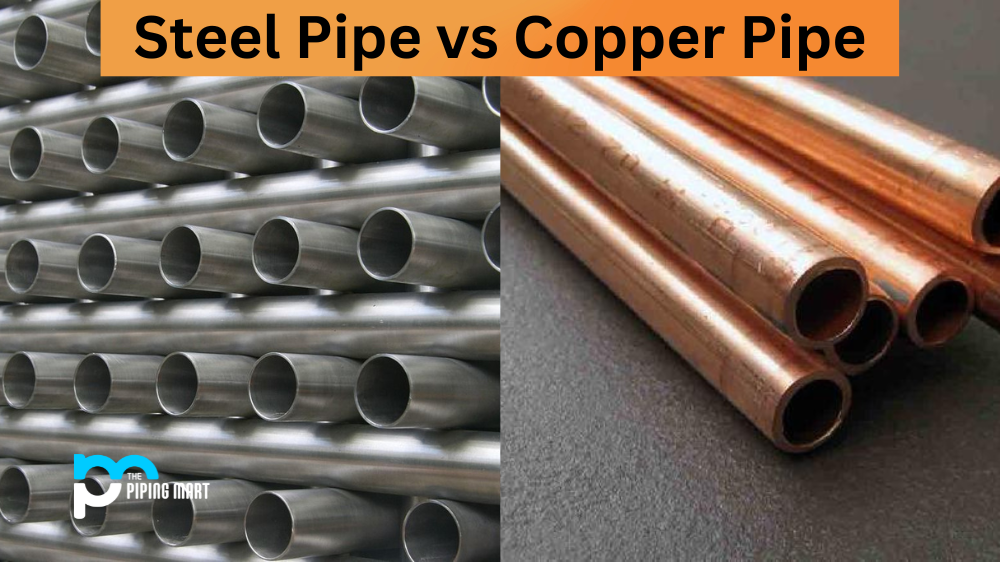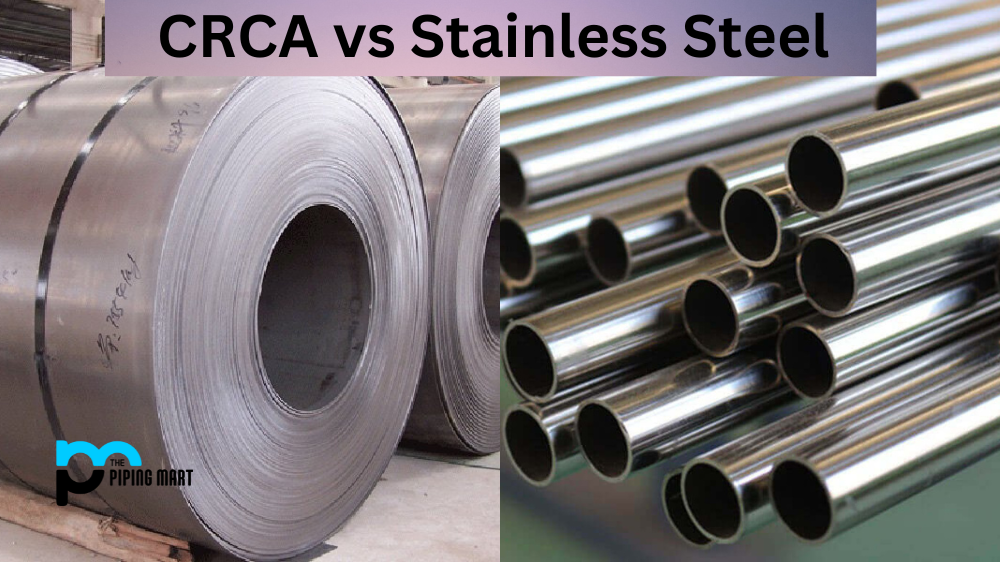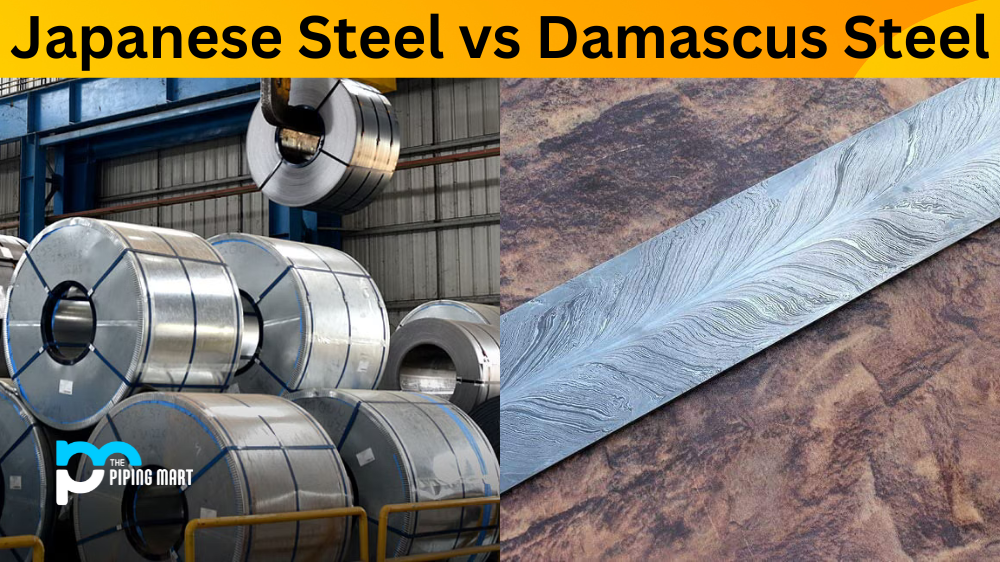If you’re looking to replace or install pipes in your home, you may be wondering which type would be best for the job. You have two main options when it comes to plumbing materials—steel pipe and copper pipe. Both have advantages and disadvantages, so let’s look at how they compare.
Difference Between Steel Pipe and Copper Pipe
Cost
When it comes to cost, steel pipe is usually the more affordable option. It’s typically much cheaper than the copper pipe and can last for many years if properly maintained. However, even though steel pipes are usually less expensive upfront, they may require more frequent maintenance because of corrosion issues. So while steel pipe may be cheaper in the short term, it could end up costing more in the long run due to upkeep costs.
On the other hand, copper pipes tend to be pricier upfront but require less maintenance over time. Copper also boasts some impressive longevity—it can last anywhere from 50 to 70 years with proper care. So while copper may cost more initially, its long lifespan makes it a great investment that will save you money down the line.
Strength
When it comes to strength, steel pipes are definitely superior. Steel is strong enough to withstand extreme temperatures and pressure without bending or breaking. This makes it ideal for use in high-pressure applications such as water mains or industrial uses like steam lines. Copper pipes are not as strong as steel pipes—they are prone to bending under certain circumstances—but they are still suitable for most residential plumbing needs, such as water supply lines and drainage systems.
Durability
When it comes to durability, steel has the edge over copper once again due to its resistance to corrosion and rusting. Steel pipes can stand up against wear and tear better than their copper counterparts and can last for decades if kept in good condition. Copper pipes are also quite durable, but they do require regular maintenance in order to prevent corrosion from occurring too quickly, which can reduce their lifespan significantly if neglected.
Advantages of Steel Pipe
One advantage of steel pipe over copper pipe is that it is less likely to corrode. Steel pipe is also less likely to freeze in cold weather, making it an ideal choice for outdoor applications. Additionally, steel pipe is typically less expensive than copper pipe.
Advantages of Copper Pipe
One advantage of the copper pipe over steel pipe is that it has a higher resistance to heat and pressure. Additionally, a copper pipe does not corrode as easily as a steel pipe, making it a good choice for exposed or outdoor applications. Copper pipe is also a better conductor of heat and electricity than steel pipe.
Disadvantages of Steel Pipe
One disadvantage of steel pipe over copper pipe is that it is more susceptible to corrosion. Additionally, steel pipes can freeze in cold weather, which can cause problems with plumbing and heating systems. Finally, steel pipe is typically more expensive than copper pipe.
Disadvantages of Copper Pipe
One disadvantage of the copper pipe over steel pipe is that it has a lower resistance to heat and pressure. Additionally, copper pipe can corrode more easily than steel pipe, which can cause problems with exposed or outdoor applications.
Conclusion:
When choosing between steel pipe vs copper pipe for your next project, there is no clear-cut answer, as both types have their own unique pros and cons that should be taken into consideration before making a decision. Ultimately, each material has its strengths and weaknesses, so it’s important to weigh all of your options carefully before settling on one type of pipe over another for your specific needs. With proper research and planning, you should be able to find the best solution for your project without having too much difficulty!

Abhishek is a seasoned blogger and industry expert, sharing his insights and knowledge on various topics. With his research, Abhishek offers valuable insights and tips for professionals and enthusiasts. Follow him for expert advice on the latest trends and developments in the metal industry.




